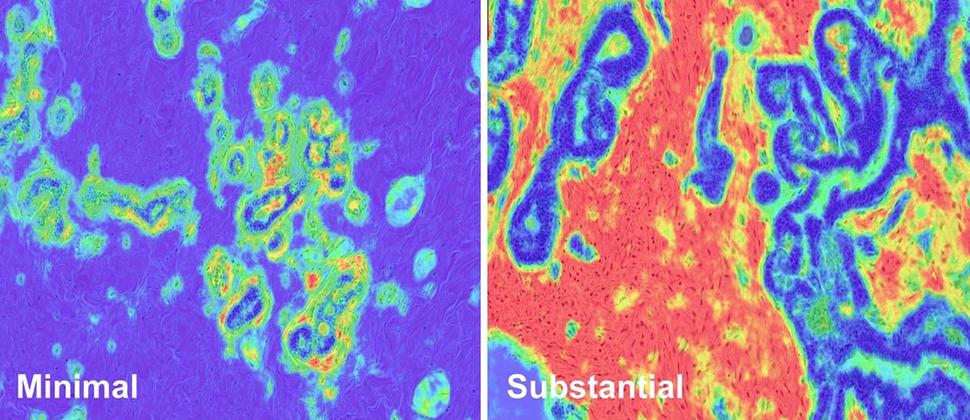Stromal Disruption Predicts Aggressive Breast Cancer Risk and Poorer Survival
, by NCI Staff
A team of investigators led by Mustapha Abubakar, M.D., Ph.D., Earl Stadtman investigator in the Integrative Tumor Epidemiology Branch, identified disruptions in stromal tissue as a predictive biomarker for risk of developing aggressive breast cancer among women with benign breast disease, and poorer rates of survival among women with invasive breast cancer.
The findings could help inform the development of cancer prevention and treatment strategies that target the stromal microenvironment. In addition, stromal disruption is inexpensive to assess and could be widely adopted, particularly in low-resource settings where molecular analysis is impractical or very expensive.
Read the NIH Media Advisory to learn more.
Reference
Abubakar M et al. Unraveling the role of stromal disruption in aggressive breast cancer etiology and outcomes. JNCI. 2025.
